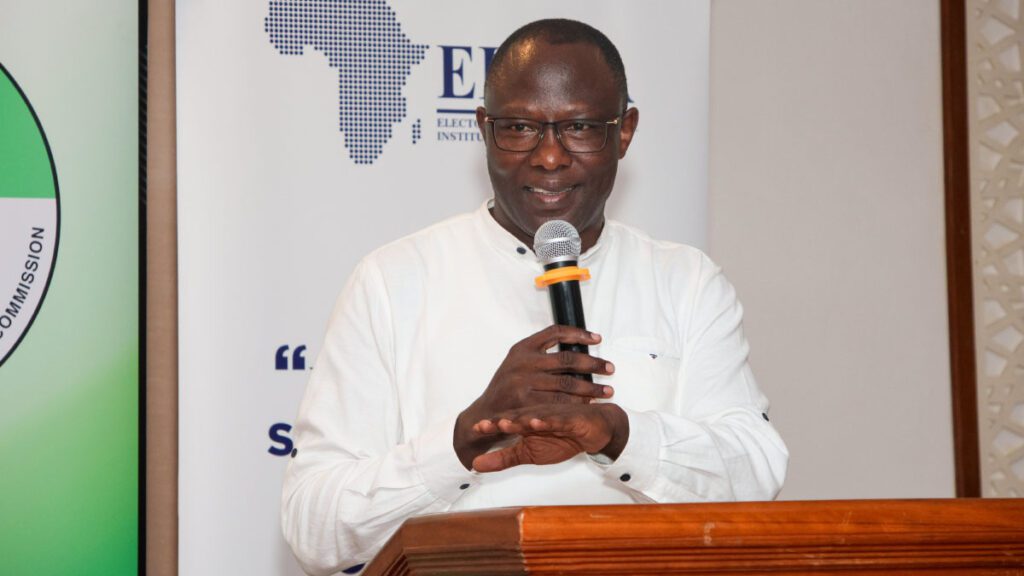IEBC Urges Parliament to Fast-Track Legal Reforms and Funding Ahead of 2027 General Election
The Independent Electoral and Boundaries Commission (IEBC) has called on Parliament to expedite critical electoral law reforms and ensure timely allocation of funds to facilitate smooth preparations for the 2027 general elections.
Speaking on Saturday, IEBC Chairperson Erastus Edung Ethekon announced that the Commission has completed a comprehensive review of Kenya’s electoral legal framework. He confirmed that a series of draft bills and regulations have already been submitted to Parliament, targeting long-standing gaps in election administration and transparency.
“We are preparing for the 2027 general elections, and there are several issues that require legislative reforms,” Ethekon said. “We’ve made these proposals in the form of draft bills and draft regulations aimed at enhancing the legal architecture of elections in Kenya.”
The reforms cover a broad spectrum, including the Elections Act, Political Parties Act, County Governments Act, and the Referendum Bill. Proposed amendments also aim to strengthen oversight of campaign financing, political party primaries, election offences, and the use of election technology.
Focus on Technology and Legal Clarity
Ethekon underscored the significance of technology in the 2027 elections, stating that the IEBC is prioritizing improvements to the laws governing digital systems used in voter registration, vote transmission, and result verification.
“As you all know, in the next election, technology will play a critical role,” he noted, adding that the Commission seeks to tighten regulations around its deployment and reliability.
The IEBC chair emphasized the need for early approval of legal amendments so that the Commission can incorporate changes into its electoral calendar, particularly its General Election Management Plan (GEMP), procurement schedules, and nationwide voter education programmes.
Budget Delays Threaten Electoral Preparedness
Ethekon also raised alarm over historical delays in releasing election-related funds, which he warned have often hindered effective planning and procurement processes. He appealed to the National Treasury and Parliament to ensure early disbursement of resources for the Commission to carry out its constitutional mandate.
“Sometimes by the time finances arrive, it’s maybe too late, and it becomes very cumbersome and stressful for us to undertake those procurements on time,” he explained. “We can only succeed if we have adequate resources that will enable us to deliver on our mandate.”
The 2027 general elections are scheduled for August 10, 2027, as per the constitutional calendar. With just over two years remaining, IEBC says timely funding is not optional—it’s a necessity for credible and transparent polls.
Call for Inclusive Stakeholder Engagement
Ethekon invited all stakeholders—including Parliament, political parties, civil society, the media, and international development partners—to work with the Commission to deliver a peaceful and credible election.
“The Commission therefore invites fellow citizens and other stakeholders to collaborate with us as we execute these priority tasks,” he said, reaffirming IEBC’s dedication to upholding transparency, inclusivity, and constitutional compliance.
The appeal from the electoral body comes at a time when Kenya’s political landscape is already heating up with pre-election alliances, voter registration drives, and growing calls for electoral accountability following concerns raised after the last general election.
As the IEBC lays the groundwork for 2027, its message is clear: legal clarity, institutional cooperation, and timely funding are non-negotiable for free and fair elections.

